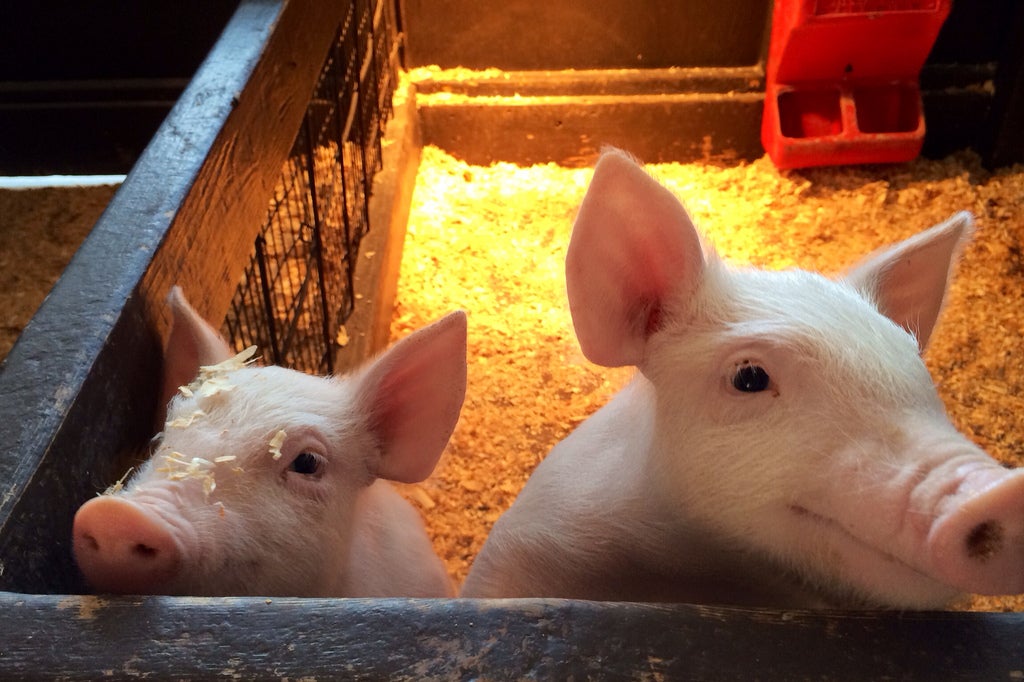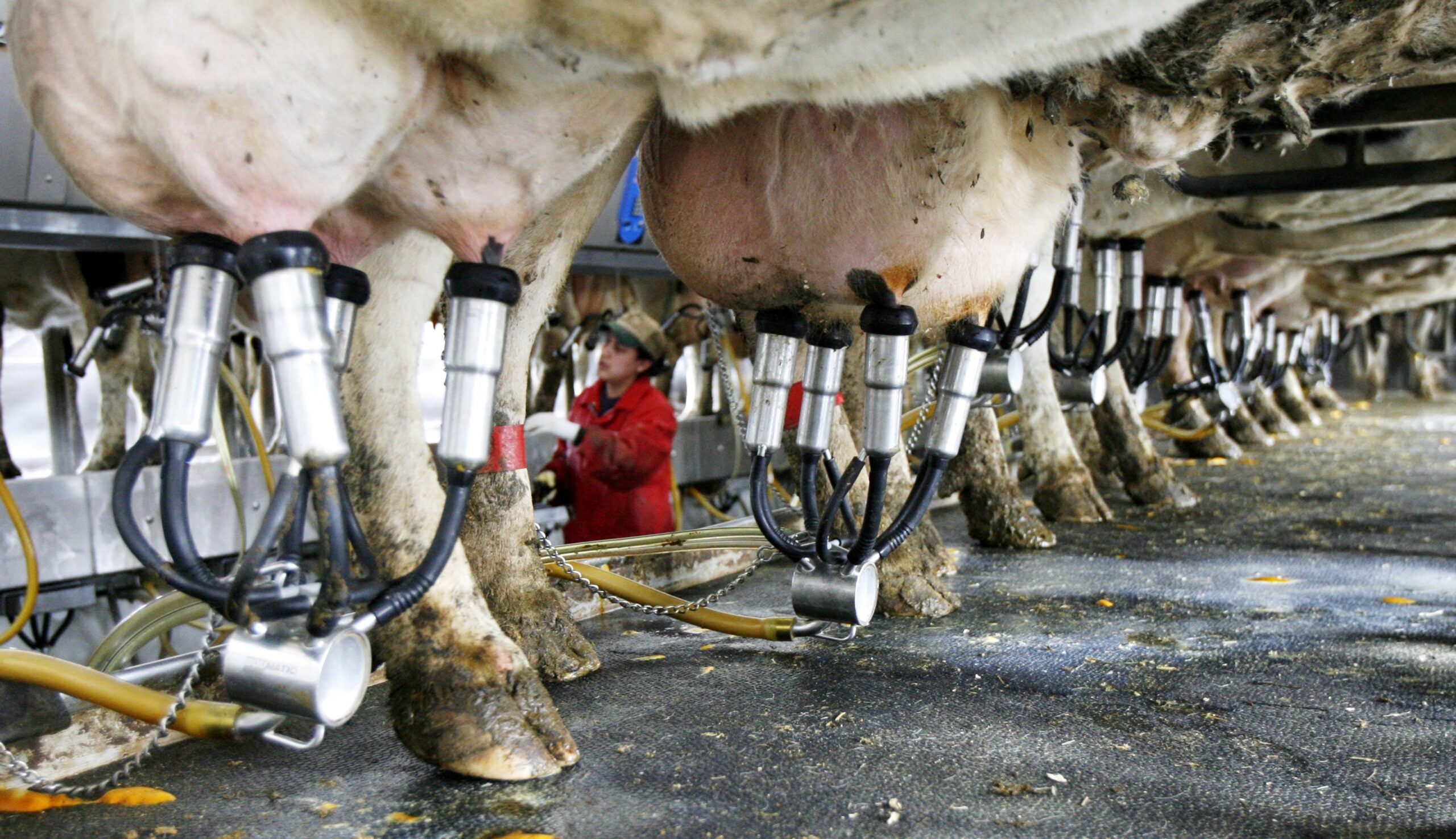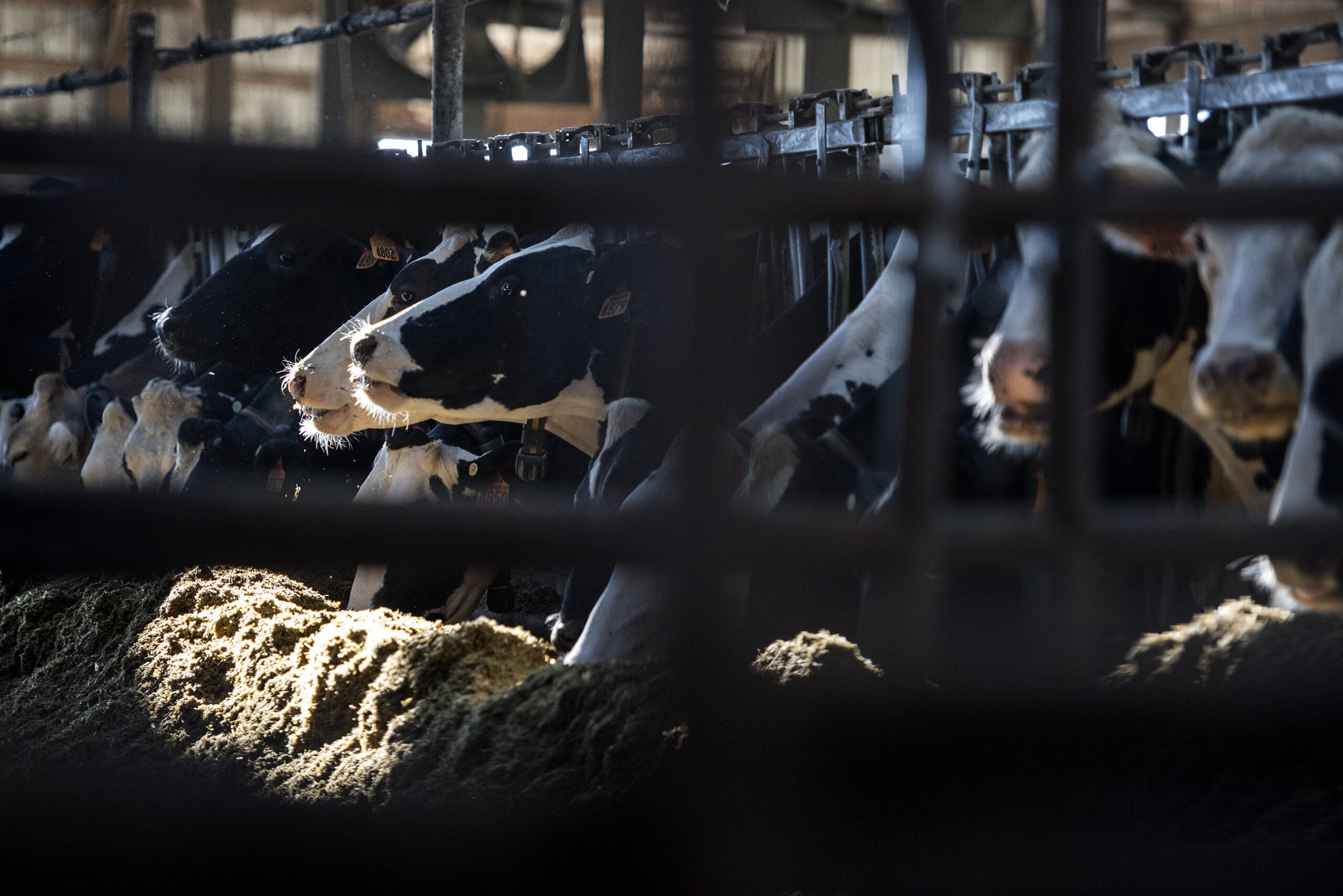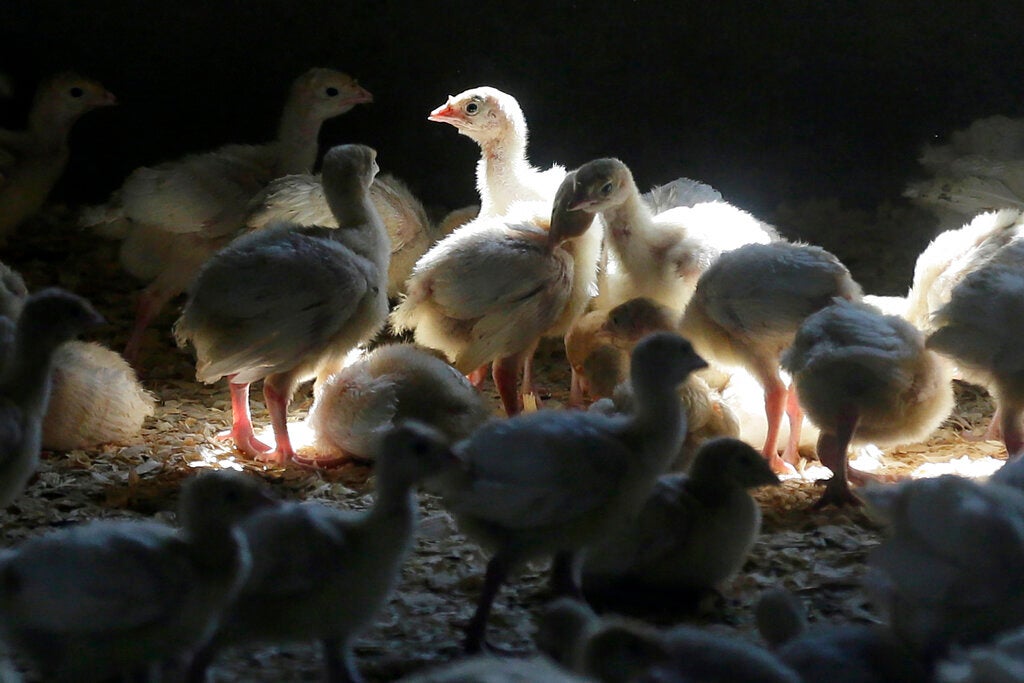A virus affecting pigs continues to sweep across the country, and the national piglet death toll continues to climb into the millions.
The porcine epidemic diarrhea (PED) virus showed up in the U.S. about a year ago. Since then, it’s been wreaking havoc on the nation’s pork industry. The fast-spreading disease causes diarrhea and vomiting in pigs. There’s practically no chance of survival for young piglets. PED virus does not affect humans.
At least 13 lab samples from Wisconsin farms have tested positive for the virus, which has killed thousands of piglets in the state.
Stay informed on the latest news
Sign up for WPR’s email newsletter.
Mike Wehler is the executive vice president of the Wisconsin Pork Association. Wehler says the disease is having a huge economic impact on producers.
“If you happen to be lucky enough not to have the virus, the price of pork is up significantly,” he said. “So, those that haven’t had those issues obviously are benefiting.”
There is no vaccine for the PED virus. A herd can become immune to the disease, but the process can take up to four weeks. During that time, very young piglets will likely die.
Wisconsin State Veterinarian Dr. Paul McGraw says the swine industry has been tightening up its biosecurity holes.
“The route that a feed truck comes on a farm, if that’s crossing the same pattern that a manure spreader may, that’s a risk of contamination and moving a virus to another farm,” he said. “Maybe an electrician coming in and doing work in a pig barn and going to another pig barn the next day, his equipment could be contaminated.”
Starting Friday, producers will have to report PED virus outbreaks to the U.S. Department of Agriculture. Wisconsin farmers will have to start reporting outbreaks to the state beginning June 1st.
Wisconsin Public Radio, © Copyright 2025, Board of Regents of the University of Wisconsin System and Wisconsin Educational Communications Board.







